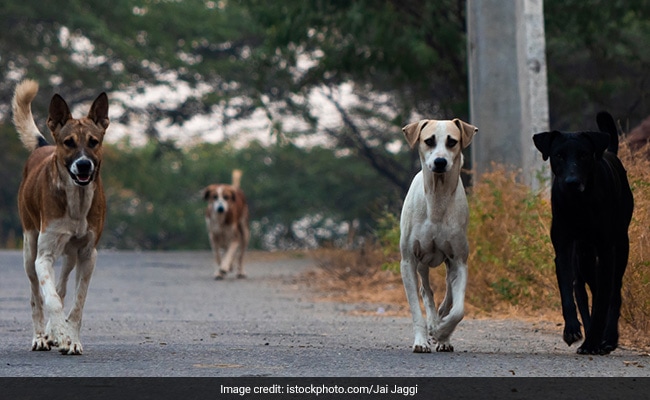
India currently accounts for 36 per cent of the world’s rabies deaths, according to the WHO
New Delhi:
The death of a prominent businessman, reportedly after a fall while running from stray dogs, has reignited the discussion on what needs to be done to contain the stray dog menace on Indian streets that has claimed several lives, including that of children.
Forty-nine-year-old Parag Desai, an executive director with Wagh Bakri Tea Group died of a brain hemorrhage yesterday. A statement from the hospital said, “It was stated that the patient fell down after being chased by dogs but apparently, there were no dog bite marks on his body.”
Following the incident, the debate on stronger action against stray dogs resumed on social media. Many cited examples of the Netherlands and the US and how they have addressed the stray dog problem.
What Has The Netherlands Done
The Netherlands claims to have zero stray dogs. It acheived this through a CNVR programme – Collect, Neuter, Vaccinate, and Return. Many local bodies have also spiked taxes for owning store-bought dogs to incentivise adopting from animal shelters. Dutch laws mandate that every dog has to be neutered or spayed. These procedures are funded by the government. There are fines for cruelty against dogs and also a special force to act in such cases. Those with concerns over an animal can contact the special force. There is a large number of animal shelters to house such animals. All these shelters are “no-kill” – meaning euthanasia is not an option. A huge section of the Dutch population owns a dog, and none are on the streets.
The US Approach
The US too has a system that prevents the stray dogs problem. Stray animals are accommodated into animal shelters, many of which are no-kill shelters. A no-kill animal shelter is one where animals are not killed unless they are terminally ill. The US, however, is now facing a problem — space crunch in animal shelters. This is forcing to euthanise lakhs of dogs annually. Some reports had claimed financial difficulties and uncertainty in the wake of the Covid pandemic had forced many owners to abandon pets. The American Society for the Prevention of Cruelty to Animals estimates about 3.3 million dogs enter US animal shelters every year. As space runs out, many animals are now abandoned on streets.
The India Problem
India currently accounts for 36 per cent of the world’s rabies deaths, according to the World Health Organization. At least 30 per cent of these victims are under the age of 15. Visuals of children being attacked by stray dogs often surface on social media, triggering demands for immediate steps to curb the stray dog problem. Dogbites in children are often unreported because they are afraid of speaking out. This September, a 14-year-old boy died of rabies in Uttar Pradesh’s Ghaziabad. Shahvaz was bitten by his neighbour’s dog about two months back, but did not tell this at home out of fear.
Public Anger
With horrifying videos of dog bite incidents emerging on social media in recent years, call to take strong steps have grown louder. Reports of a face-off between animal lovers and those opposing their activities in public spaces have often come to the fore. Pet owners, too, have faced opposition to dogs using common facilities such as lift following incidents of dog bites. Among the solutions suggested for stray dog menace is euthanasia and enhanced action by local bodies to house strays in animal shelters. The public anger against stray dogs has led to several incidents of animal cruelty.
What Do Laws Say?
Before 2001, municipal authorities could euthanise stray dogs to keep public places safe. In 2001 came the Animal Birth Control (Dogs) Rules. These rules created a separate catrgory called “street dogs” and said they should be sterilized and immunised by “participation of animal welfare organizations, private individuals and the local authority”. These rules were silent on euthanising stray dogs except those “incurably ill” or “mortally wounded”. It also said dogs caught for sterlisation and vaccination should be “released in the same area”.
What Are The Challenges?
A solution to the stray dog problem in India on the lines of the steps taken in the Netherlands faces many challenges. The biggest among them is the funds crunch. Sterlization of dogs is expensive and cash-strapped municipal bodies often put it at the bottom of their priority list. To shift dogs to animal shelters would require huge investment in building such shelters. The less-desirable euthanasia solution, advocated by some voices, faces other hurdles. Religious beliefs in India bar cruelty towards animals and as a society, there is an uneasiness over accepting a solution such as killing an animal.
What Is The Way Out
A lasting solution to the stray dog problem would require far-sighted planning, significant government spending and public awareness exercises to sensitise people on animal cruelty. For a developing country still battling poverty in a large section its population, funding for animal shelters and care remains a tall challenge. However, choosing an option to euthanise stray animals may lead to cases of misuse and animal cruelty. Petitions by a Kerala local body, seeking permission to cull stray dogs, is now in the Supreme Court. The court last month said it will issue strong guidelines.




